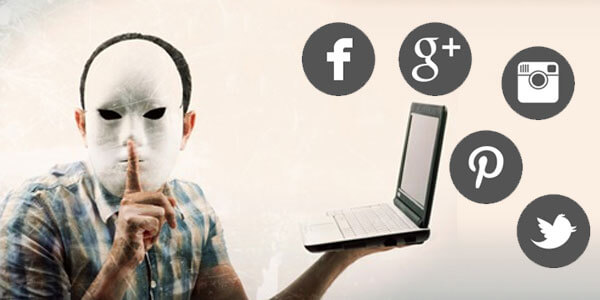Market research conducted by the Pew Research Center reveals that 69 percent of adults are leery regarding the way their personal data will fare the moment they are on social media.
They must be shaking in their boots, as per the Crime Complaint Center (IC3) yearly report on Internet crime prepared by the FBI.
In accordance to the IC3 report, social media is fast burgeoning as a chosen playground for the online con artists to track down potential targets.
The fact is around 12 percent of the 269,422 complaints registered in 2014 were linked to social media
Social media scams has quadrupled over the last five years, according to IC3. Most of the cases involved exploitation of personal data using compromised accounts or social engineering.
Some of the ways the IC3 is identifying:
#Clickjacking
This social media scam involves concealing hyperlinks beneath good, clickable content that, once clicked, may lead to malware installed/downloaded onto the victims’ computers. This may send personal information of the victims unknowingly to a con artist's website, or even share the malware link amongst all his/her friends.
The IC3 has reported numerous clickjacking scams involving social media buttons such as “Like” and “Share”
These scams aren’t new, of course. They are basically spreading now and the reason is quite apparent: they are proven source of money-making.
In 2012, a Washington-based prosecutor asked one entity to do away with its spam and clickjacking business, which the entity readily consented to, even though it was making a neat $1.2 million a month off it.
How to stay safe: Irrespective of how attractive it is to click on hyperlinks such as “watch how a zookeeper has been eaten up by a giant snake!”, “Lady Gaga found dead in a motel room”, “A mammoth tsunami in Japan launches whale into building”, “nude shots of a female country star” or better still “101 Hottest Women alive on Earth”, if you find a scam like these on one of your newsfeeds, then make sure you get rid of them and report those links as “spam” on popular social networking sites like “Facebook”, “Twitter”, “Google+”, etc.
Remember, you would never want to share those malicious junk with your friends.
#Doxing
This social media crime revolves around identifying a person’s information on the Internet sans authorization. Granted, such an explanation may appear as tame but think about it seriously; private, personal data is precious and restoring privacy once it has been lost could be difficult. Con artists do these to hurt the victims. However, the same can lead to other crimes like swatting, identity theft, stalking or may be revenge porn
How to stay safe: Be careful regarding sharing information about yourself, or family members or even friends. Its an easy trap to leave a trail of small, but apparently classified bits of information behind yourself that could be added up to something really meaning and harmful.
You need to start by having your social media accounts on Facebook, etc locked Fortunately, Facebook has in the recent past translated its entire privacy policy into simple English. This should help undiscerning social media addicts like you.
#Pharming/Phishing
The IC3 report highlights Pharming but I’ve included Phishing too. This is because the difference is mainly technical. Regardless of the terms “Phishing” or “Pharming”, the criminals are always trying to fool you into visiting a shady site and coax you to hand over your personal information like passwords.
How to stay safe: As per the IC3 recommendations, you should always type the official websites on your own, instead of clicking on a hyperlink that could’ve been sourced from an unsolicited server that in turn might lead you to some hackers’ website.
You know how difficult this could be to put into practice but we would suggest that you supplement your online activities with smart judgment by using anti-malware solutions to block the unsolicited URLs (probably sent from phishing sites) from showing up in your computer’s browser. These anti-malware solutions should ideally use two factor authentication on any websites that offer such shady links.
In short, it's good to be leery of social media. If you aren’t, then scammers will leverage your personal information to squander away your money. You’ll slowly get into debts instead of getting out of it without even realizing anything. So, beware!
There's a lot more to be leery about.













